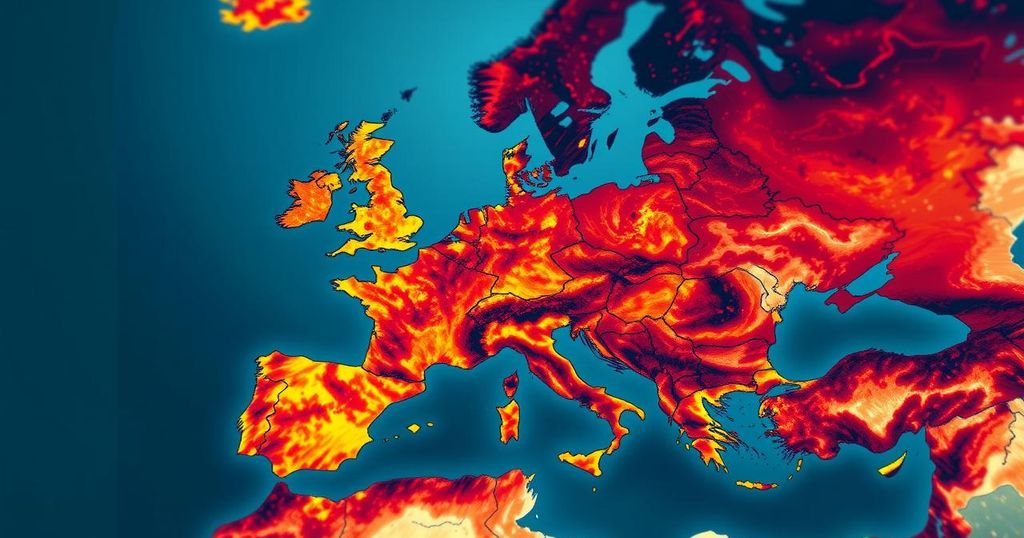The Copernicus Climate Change Service predicts that 2024 will likely be the warmest year on record, exceeding 1.5°C above pre-industrial temperatures. This alarming milestone coincides with extreme weather events and underscores the need for urgent climate action. The findings come just ahead of critical UN climate talks in Azerbaijan, amidst concerns regarding future warming and international climate commitments.
According to the Copernicus Climate Change Service of the European Union, 2024 is almost certain to be recorded as the warmest year in history, with temperatures expected to exceed 1.5°C above pre-industrial levels. This assertion was made on November 7, just days prior to the upcoming UN climate negotiations in Azerbaijan. The agency has noted that significant global temperature shifts necessitate urgent action to reduce emissions during these discussions. In the context of extreme weather events this year, such as the severe flooding in Spain and Hurricane Milton in the US, October 2024 has warranted attention as the second hottest October on record. The expected rise in temperature, projected at 1.55°C above the 1850-1900 average, continues to reflect a troubling trend of increasing global temperatures, despite being measured within a broader time frame that aligns with the Paris Agreement’s objectives. Samantha Burgess, Deputy Director of Copernicus, emphasized the implications of this anticipated record, stating, “It is now virtually certain that 2024 will be the warmest year on record and the first year of more than 1.5°C above pre-industrial levels. This marks a new milestone in global temperature records and should serve as a catalyst to raise ambition for the upcoming Climate Change Conference, COP29.” As negotiations approach, the backdrop of American political dynamics, including the implications of prior and current US administrations regarding climate commitments, remains critical. The UN has warned that the current trajectory of climate action might lead to a catastrophic increase of approximately 3.1°C this century, underscoring the urgency for enhanced carbon-cutting initiatives. Furthermore, it is essential to understand that rising temperatures provoke significant climatic disruptions, leading to extreme weather phenomena such as severe rainfall and drought conditions worldwide. October illustrated these dynamics with notable rainfall patterns across Europe and continued drought affecting millions in the United States. The Copernicus dataset indicated that sea surface temperatures were also alarmingly high for this October, contributing to the ongoing challenges posed by climate change. Scientists assert that the current climatic conditions represent the warmest phase the earth has likely experienced in the last 100,000 years, marking a significant shift in the earth’s environmental and geological landscape.
The issue of climate change has become increasingly pressing in recent years, with significant scientific consensus regarding the urgent need to address global warming and its myriad impacts. The threshold of 1.5°C above pre-industrial levels is particularly critical, as it has been identified by the United Nations as an increasingly unattainable limit, beyond which the risks of climate-induced disasters escalate dramatically. Recent data from the Copernicus Climate Change Service corroborates the concerning trajectory we are currently on, emphasizing the need for accelerated international cooperation and commitment to emissions reduction.
In conclusion, the alarming projections for 2024 as potentially the hottest year on record highlight an urgent need for collective global action in combating climate change. The unfolding climatic events underline the pressing consequences of inaction as nations prepare for crucial negotiations focused on achieving effective carbon reduction goals. As experts underscore, every increment of temperature rise carries significant ramifications, making it imperative to enhance climate strategies forthwith.
Original Source: www.lemonde.fr







